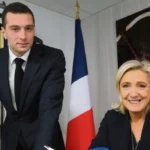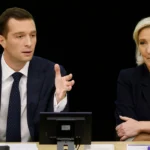In recent times, Brussels, the de facto capital of the European Union, has found itself at the center of a brewing storm, with allegations of espionage, breaches of parliamentary immunity, and questionable investigative practices. The narrative surrounding the unraveling events in the EU Parliament, notably the Qatargate scandal, has raised serious concerns about the safety and security of foreign diplomats and international organizations within the city.
The controversy took a significant turn when Belgian judge Michel Claise found himself investigating a dossier related to the activities of the European Parliament’s special Pegasus commission. This commission was tasked with probing the illegal wiretapping of European leaders carried out by Morocco, a matter of grave concern in the realm of international relations.
What came to light, as disclosed in the judicial file, was that the Belgian secret services had allegedly put members of the Pegasus commission under surveillance. This revelation struck at the heart of parliamentary immunity, a cornerstone of democratic governance. Eva Kaili, a member of the European Parliament, sounded the alarm last June, highlighting the potential threat to European democracy posed by the covert surveillance of elected representatives.
The dossier, central to the investigation and later dubbed “Qatargate,” opened a Pandora’s box of violations. It was revealed that the Belgian police, in an unprecedented move, entered the European Parliament in plain clothes, ostensibly to observe and take notes on the activities of deputies. This breach of protocol, particularly Protocol number 7 on the privileges and immunities of the EU, underscored the magnitude of the situation.
Notably, the police, on July 25, 2022, submitted a detailed report to the judge, citing the names of MEPs kept under surveillance in a corruption investigation. This report not only delved into the rules governing parliamentary immunity but also proposed a course of action to potentially revoke it. Among the alleged breaches, the inviolability of the premises of the European Union stood out, indicating a blatant disregard for established protocols.
The obsession with monitoring the Pegasus commission’s activities was evident in multiple police reports, complete with detailed lists of its members. The reports, sent to the investigating judge, hinted at repeated violations of Protocol number 7. Even the inviolability of the premises of the European Union, a fundamental principle, seemed to have been compromised when the Belgian police reportedly monitored the Pegasus Commission’s movements.
The complexity of the situation deepened as it was revealed that the Belgian secret services, with the assistance of six other countries, initially acted without informing the judicial authority. This defiance of rules on parliamentary immunity is particularly troubling, especially when foreign deputies are involved, subject to the rules established by their home states.
Amidst the controversy, concerns about the impartiality of Judge Claise surfaced, leading to his resignation due to his connections with MEP Maria Arena. The doubts regarding the legitimacy of the investigations carried out into Qatargate further intensified, prompting lawyers to seek verification from the Brussels Court of Appeal.
As the investigation unfolds, questions linger about the rights violated during the process, creating an alarming context that strikes at the heart of European democracy. The call for answers from judicial authorities and the European Parliament underscores the urgent need to address the growing unease surrounding the safety of foreign diplomats and international organizations in Brussels. The unfolding events in the EU Parliament demand a thorough examination and a commitment to upholding the principles that form the foundation of a democratic society.






